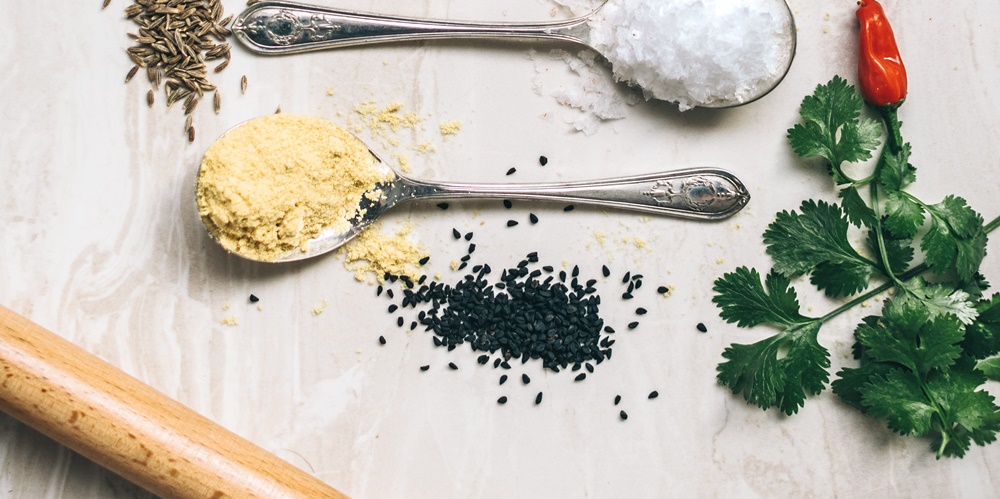Digestion and herbs – do herbs improve digestion?
A human body can be likened to a great machine. Similar to a machine, defined as an assemblage of parts that each have a unique function, a human body is made up of different organ systems performing a number of processes essential for its health – a well-functioning machine. Like most engines and motors, the body also requires constant maintenance and solutions to occasional hang-ups.
Indigestion is otherwise known as an upset stomach. Almost all people have experienced this common condition frequently attributed to the stomach’s difficulty in digesting certain types of food. It may also be caused by beverages that are gastric irritants, it also happens when you eat too much and too fast. Symptoms include abdominal pain and distension, acid regurgitation, nausea and vomiting, excessive belching, and passing of flatus. Indigestion is usually considered to be a simple problem that resolves on its own. Yet, it is still a cause of discomfort for a lot of people.
Natural fix for indigestion
Herbs are plants that are non-woody in nature and utilized for their culinary and medicinal qualities. They are common remedies for ailments, dating as far back as 1500 BC. They are natural treatments that have no side effects. They are packed with vitamins and minerals. Herbs are commonly used for headaches, constipation, acne, indigestion, and many other everyday health issues.
So how do herbs help in digestion? Digestion is a process of breaking down the food into smaller components for easier absorption of nutrients into a bloodstream. It is influenced by several factors like the kind of food taken, amount, temperature, medications, as well as stress. Herbs improve digestion using a variety of methods.
Herbs classification
Digestive herbs can be classified according to their usage and way of action.
Anti-Emetic – these herbs help prevent vomiting, as well as relieve nausea. Examples are Cayenne, Cloves, Fennel, Lavender, and Peach leaves.
Anti-Spasmodic – ant-spasmodic herbs help reduce or ease cramps. Examples: include Black Haw, Chamomile, Eucalyptus, Motherwort, and Thyme.
Carminative – carminatives are herbs rich in oil helping in peristalsis stimulating and preventing the formation of gas, as well as reducing intestinal cramping. Examples are Aniseed, Cayenne, Cinnamon, Ginger, Juniper, and Mustard.
Hepatic – hepatic herbs improve the secretion of bile from a liver. They help by cleansing out the colon, enhancing digestion, and eliminating. They are believed to improve the secretion of bile that is essential for the digestion of fats and oils which are also said to be causes of indigestion. Examples include Agrimony, Aloes, Black roots, Celery, Hyssop, Horseradish, and Wild Yam.
Laxatives – these herbs promote defecation or the evacuation of bowels. Examples are Barberry, Buckthorn, Cascara Sagrada, Dandelion, and Rhubarb root.
Components of herbs
The components of herbs depending on the type of herb. Herbs are mainly composed of water, plant acid, carbohydrates, salt, complex proteins, bitter principles and alkaloids. Other types of chemicals are also present in some herbs which contribute to their digestive effect. Mucilage is made up of carbohydrates – it decreases the sensitivity to gastric acid and cures diarrhea. Anthraquinones are commonly present in herbs used as laxatives like Senna, Buckthorn, and Aloe. It stimulates the colon promoting peristalsis, usually 8-12h after intake. Flavones and flavonoid glycosides are anti-spasmodics and diuretics.
The key to a smooth-running digestive system
Since the beginning of time, men have relied on the power of herbs for various medical conditions. Herbs have special components that resolve problems such as indigestion by speeding up metabolism, promoting bile secretion, emptying the colon, as well as preventing discomforts like nausea, vomiting, and stomach pain.
Long before drugs became popular worldwide, herbs have been sought out for the treatment of digestive problems. There are a lot of herbs available. While others may seem foreign and rather unfamiliar, there is still a lot that can be commonly found in your kitchen or garden. So take the time to familiarize yourself with herbs around you and turn your inner motor into a smooth-running digestive system.




























